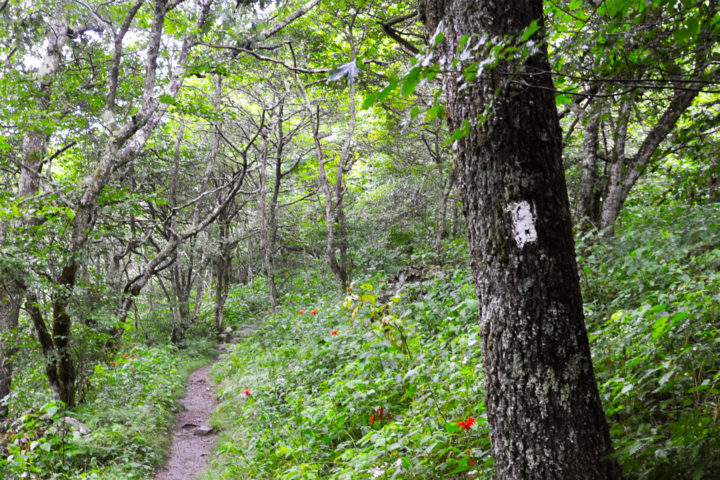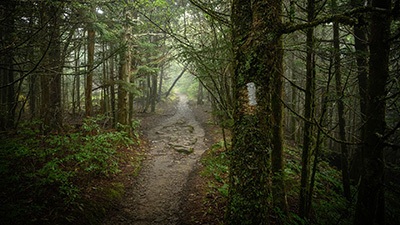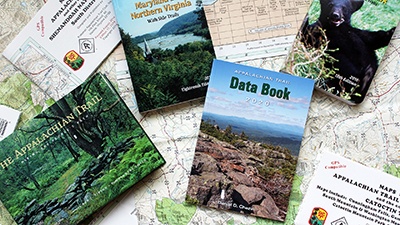Stay Safe
COVID-19 Update for 2020 A.T. Thru-Hikers
May 20, 2020
The response to COVID-19 is constantly evolving throughout the world, and the ATC is frequently updating its guidance and listings of Trail-related closures and travel restrictions. To make sure you have the most up-to-date information, please visit appalachiantrail.org/covid19.
Dear A.T. Hiker,
In March, in the face of a growing international pandemic, the Appalachian Trail Conservancy (ATC) asked 2020 Appalachian Trail (A.T.) thru-hikers to postpone or cancel their treks until further notice. We recognize, for many of you, this meant postponing an adventure you had dreamed of for months, years, or even decades. We are thankful to those hikers who followed our guidance and did their part to help prevent the spread of the virus to Trailside communities and to other A.T. hikers.
As of May 20, 2020, over 1,500,000 cases of COVID-19 in the United States have been diagnosed and reported to the Centers for Disease Control and Prevention (CDC). More than 90,000 people have died in the United States from this highly contagious virus including almost 59,000 in the fourteen states the Trail passes through.
While some states are removing or relaxing stay-at-home orders, there are still numerous restrictions and closures on the A.T. Over 100 shelters are still closed, at least three states have required or recommended fourteen-day quarantines upon entering from out of state, and stay-at-home orders are still active in several states. Even if some sections of the Trail are open, Trail facilities like shelters, privies, and trailheads may not be open to public use.
In light of the current situation, we ask that you continue to postpone your thru-hikes. And, in the interest of the Trail community’s health and safety, the ATC will continue to maintain a temporary pause on 2,000-miler recognition.
Considering the variety of responses to this highly dynamic pandemic across the fourteen Trail states, the ATC convened a task force to review and issue guidelines so that hikers can re-engage with the Trail in a safe, healthy, and responsible way.
One of the first guidelines developed by the task force is to Stay Local — to choose hikes that do not require you to stop for gas, food, resupply, or similar situations where the risk of contracting and spreading COVID-19 are increased. The very nature of a thru-hike goes against this guidance and may, in fact, increase the opportunity to spread or contract COVID-19:
- Thru-hikers must frequently stop in towns to resupply, whether in grocery stores or via mail drops.
- In order to get to these towns, hikers must either arrange for shuttles or hitchhike, or arrange for other transportation.
- This process is repeated dozens of times throughout a thru-hike, each instance creating risk of becoming infected and spreading the virus along the Trail.
For these reasons, as well as others mentioned in our previous letter, we ask that thru-hikers continue to postpone their long-distance treks for the time being.
When will our guidance change? While the future is uncertain, the task force has identified three criteria that will signify the situation has improved and it may be time for thru-hikers to resume/start their journeys. When one of the below criteria has been satisfied, the ATC will work with its partners to review and update its guidance for thru-hikers:
- All official closures on the A.T. resulting from the pandemic are removed.
- The rate of COVID-19 infections has remained flat for a period of two weeks and recommended/required quarantines for out-of-state visitors in all fourteen Trail states have been lifted.
- An effective vaccine to protect against COVID-19 is widely available.
We understand the situation surrounding COVID-19 is constantly changing, and the ATC will continue to update its recommendations as more information becomes available. Until then, we thank everyone for their patience, their input, and their efforts to help protect themselves, their fellow hikers, and the communities along the A.T.
Sincerely,
The Appalachian Trail Conservancy Team
Discover More

Stay Safe and Healthy
Responding to COVID-19
Learn how ATC is working to help mitigate the spread of COVID-19 on the Appalachian Trail.

ATC's Official Blog
A.T. Footpath
Learn more about ATC's work and the community of dreamers and doers protecting and celebrating the Appalachian Trail.

Stay Informed
Latest News
Read the latest news and updates about the Appalachian Trail and our work to protect it.





